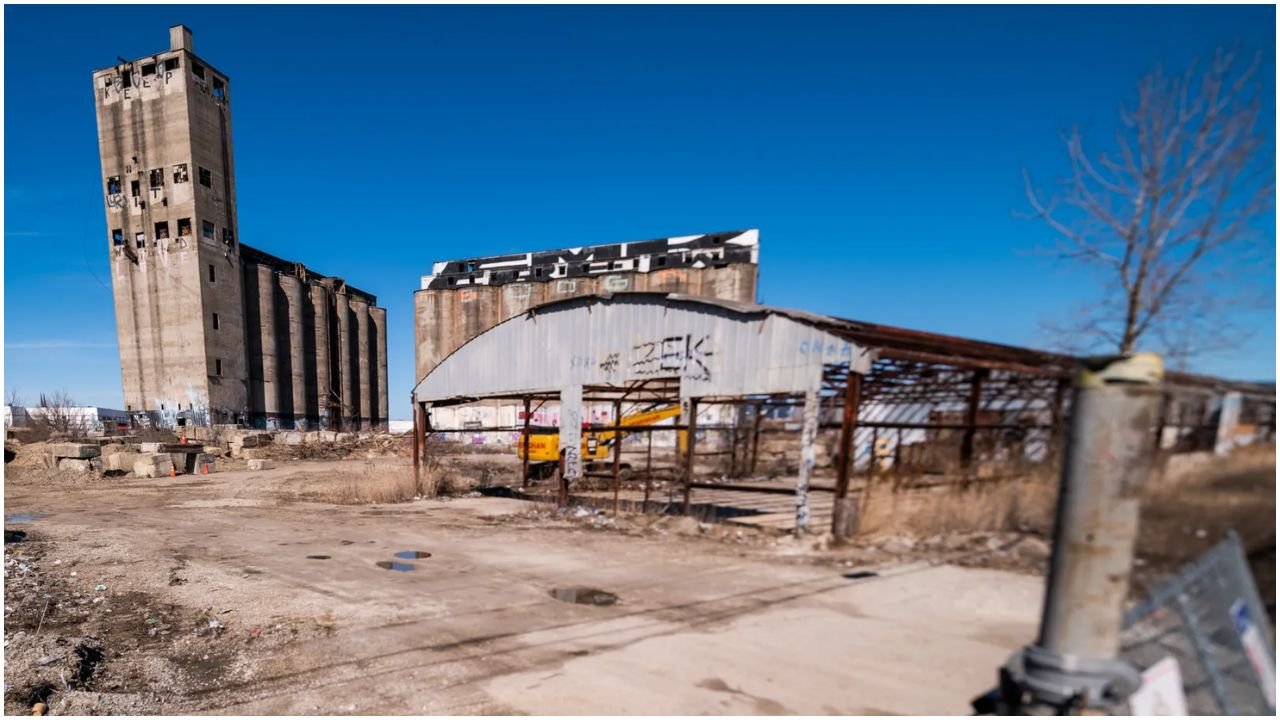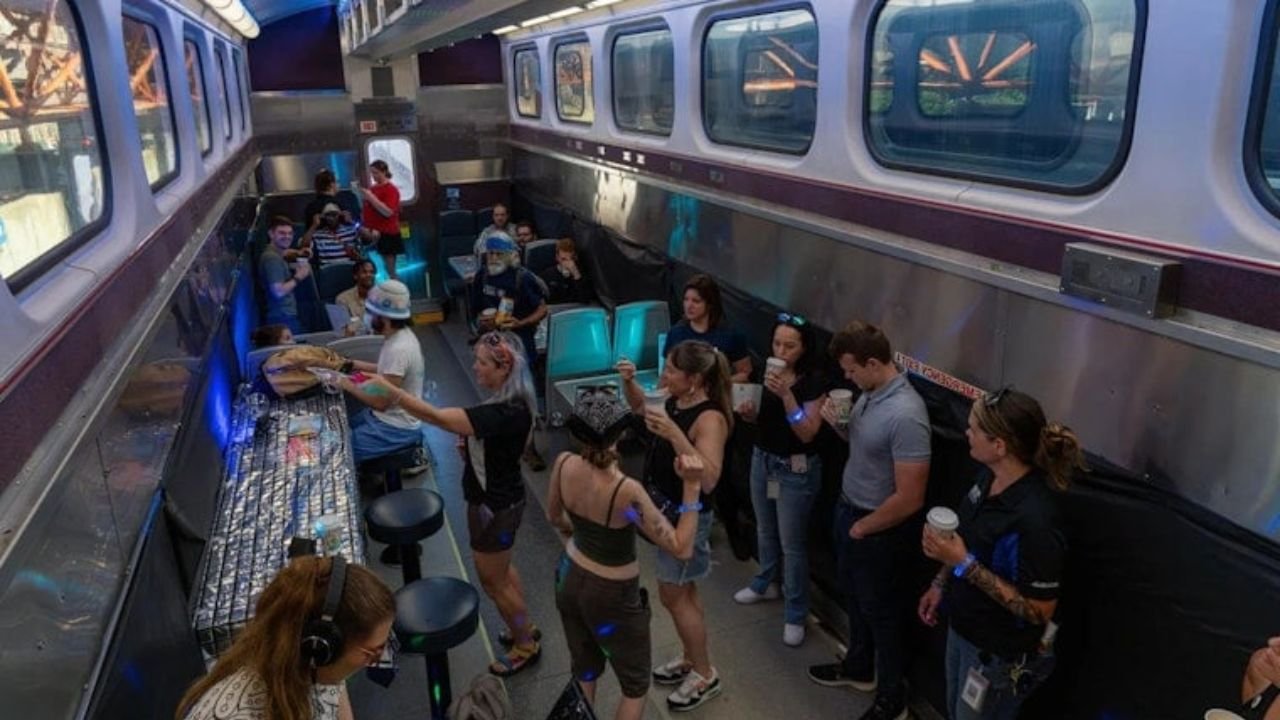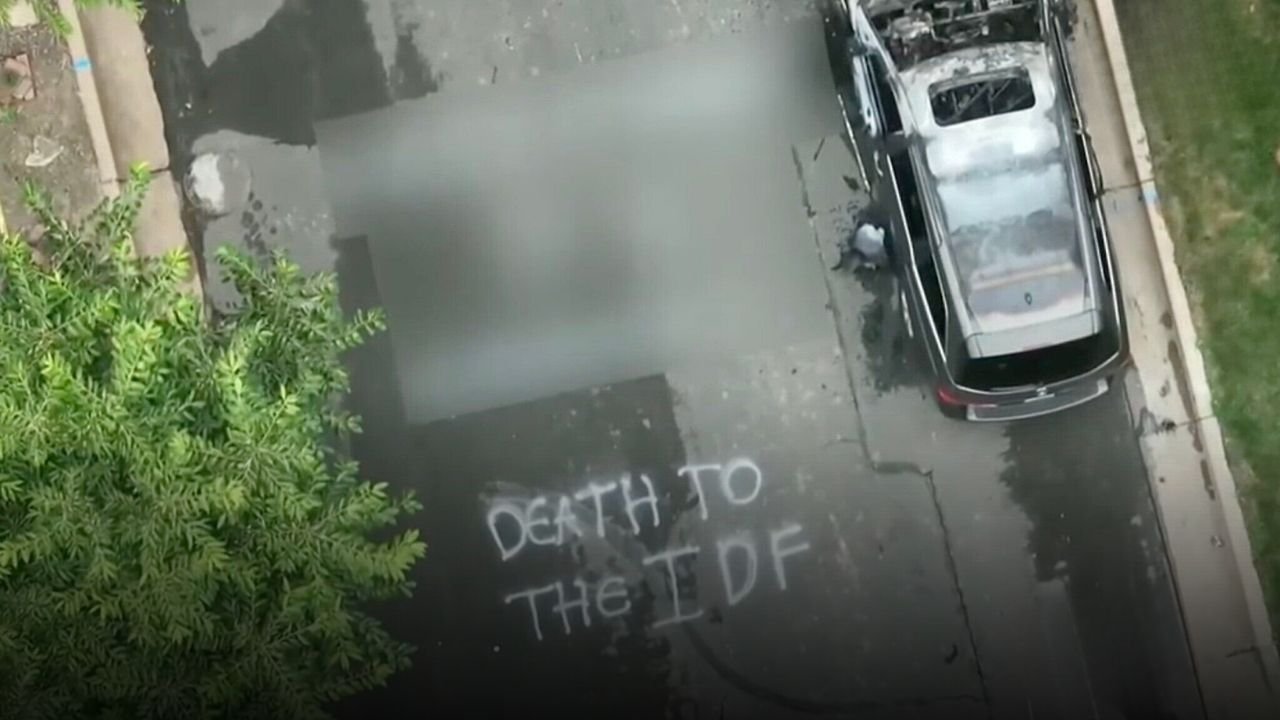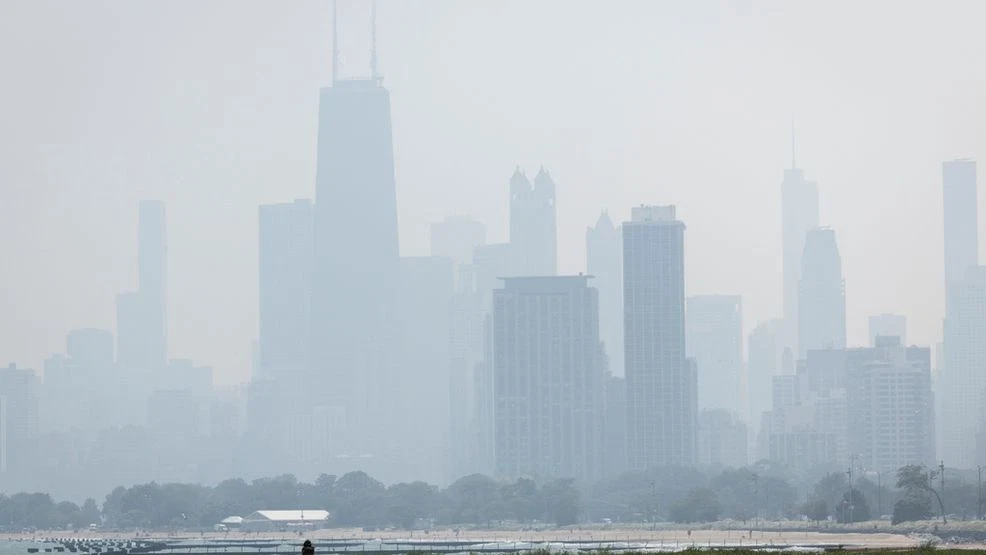CHICAGO — A historic industrial relic visible to thousands of commuters daily may soon vanish from the city’s skyline, as plans to demolish the Damen Silos move forward. But a growing coalition of preservationists, environmental advocates, and community leaders are pushing back, pitching an alternative vision: a riverfront public park and music venue.
The Damen Silos, a series of grain elevators dating back to 1906, stand on 23 acres of riverfront land near the Stevenson Expressway. Abandoned since a 1977 explosion, the site has become a ghostly monument to Chicago’s industrial past — and a canvas for community dreams.
Community Rallies for Preservation and Purpose
The site’s current owner, Michael Tadin Jr., CEO of MAT Asphalt, bought the property from the State of Illinois in 2022 for approximately $6.5 million. Tadin has filed for federal permits to demolish the silos, but has not disclosed plans for redevelopment.
That silence has only fueled local activism. Community leaders including the McKinley Park Development Council and Preservation Chicago argue the city is missing a once-in-a-generation opportunity to create green space and cultural infrastructure in a heavily industrial corridor.
“It’s a local landmark… part of our neighborhood and our landscape,” said Kate Eakin, managing director of the McKinley Park Development Council. “We envision this as a year-round park and an event space — something like the Salt Shed.”
Salt Shed-Style Venue Proposed
The activist coalition proposes turning the Damen Silos site into a public park and riverside trail, managed by the Chicago Park District, while leasing event operations to Blue Star Properties, the company behind the Salt Shed, a popular North Branch concert venue.
Preservation Chicago has also placed the Damen Silos on its list of Chicago’s 7 Most Endangered Buildings in 2023.
“This can be a reality,” said Ward Miller, executive director of Preservation Chicago. “It’s a collaboration between private operators, the Park District, land trusts, nonprofits — and the city.”
Demolition Oversight and Health Concerns
The City of Chicago recently hosted a public meeting at the Arturo Velasquez Westside Technical Institute in Little Village to discuss health and safety protocols for the demolition. Officials said the project will take six months and include dust mitigation and environmental monitoring.
Still, concerns remain about toxic exposure, air quality, and loss of cultural heritage — especially given the area’s proximity to schools and dense residential blocks.
Political Fallout and Historical Disregard
The property lies in Chicago’s 12th Ward, represented by Ald. Julia Ramirez, who called the state’s sale “a process that fell short of what our community deserves.” The land was previously part of the 25th Ward before redistricting in 2021.
“In December 2022, Governor Pritzker told my office the state would sell to the highest bidder,” said Ald. Byron Sigcho Lopez. “That’s exactly the problem in our city — the community’s voice gets ignored when profit is on the table.”
Residents have urged the city to designate the site as a historical landmark, which could delay or prevent demolition — but no such designation has been granted.
Should Chicago preserve industrial landmarks like the Damen Silos or prioritize redevelopment? Share your take at ChicagoSuburbanFamily.com.














